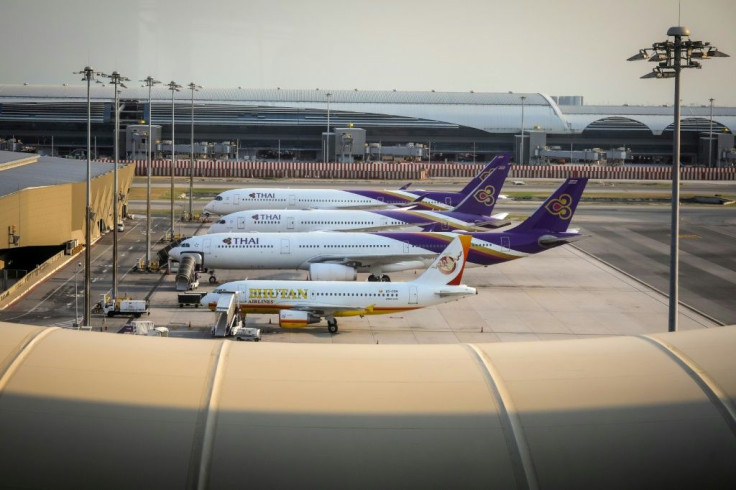Cash-strapped Thai Airways To Seek Restructuring
Thailand's cash-strapped national carrier will look to undergo a restructuring through the kingdom's bankruptcy court, premier Prayut Chan-O-Cha said Tuesday, as the stricken company is battered by the crash in tourism caused by the coronavirus.
Thai Airways -- which is 51 percent owned by the government -- has long fought to stay afloat, registering losses of almost $800 million over the past three years.
Its troubles come as the world aviation sector faces its biggest crisis, with borders globally being closed, which has sent a number of airlines either into bankruptcy or forced them to seek massive government help.
Thai Airways' debt was 245 billion baht ($7.6 billion) at the end of last year, according to local media, which also said it was set to outpace its assets in 2020.
Prayut said instead of allowing the airline to go bankrupt, it will ask the insolvency court's for a reorganisation that will allow it to set out a debt restructuring plan.
"I am letting Thai Airways submit into the rehabilitation plan and we will not let them go bankrupt as it will affect more than 20,000 lives," he said in a televised address after a cabinet meeting Tuesday.
"It is the one way that the airline can operate and the staff still have a job," he said, adding the government would not provide financial support.
In a statement after the announcement, the airline said it "will not be dissolved or go into liquidation or be declared bankrupt", though its union said some 5,000 staff out of its 20,000-strong team is expected to be let go.

The finance ministry will also likely reduce its shareholder stake, which means it would no longer be a state enterprise, said a government spokesperson.
Under Thailand's bankruptcy laws, a company undergoing rehabilitation will not have to repay its creditors during the process, said lawyer Ukrit Detsiri of Price Sanond, which represents international hotel chains and food and beverage companies.
Thai Airways creditors will have to work out a "best solution", which could mean debtors can only recover some of their money, said Ukrit.
Aviation expert Brendan Sobie said the troubled carrier has tried restructuring in the past, to no success.
"They've had issues with government and political meddling on a lot of decisions," said the Singapore-based analyst.
Allegations of executive mismanagement, bloated bureaucracy, and corruption have long plagued the airline, which has also come under pressure from increased competition from low-cost carriers.
The government was previously mulling a 54 billion baht bailout for the airline, which was met with a public outcry.
Thailand's economy is expected to shrink more than six percent this year as the outbreak shatters the country's crucial tourism industry, with all flights into the country banned until the end of June.
© Copyright AFP 2024. All rights reserved.







